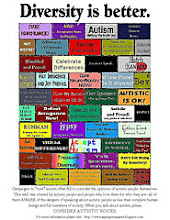And other dis orders

Back in the good old days of yore, children played doctors and nurses. More often than not, the boys would be the doctors and the girls would be nurses. [translation = unless you were a big sister] The doctors would examine the victim, determine symptoms and then chop things off. Nurses were left to stitch up holes, apply bandages with non safety safety pins and then clean up the mess.
It is my contention that there are really only two types of people in the world, namely nurses and non nurses. Nurses are caring, sharing, kindly types where nothing is too much trouble. Non-nursing types get annoyed about the bodies messing up the family room. I mean, if you’re ill, you go to bed to get better. [translation = so much tidier] If you’re ill, you do not drip around the house getting in everyone’s way. Illness should always be invisible or failing that, upstairs in bed, where one can be visited and tended too are regular intervals.
Although I am a picture of health myself, if I were ever unfortunate enough to be otherwise, I would do the decent thing and excuse myself. I fail to understand why this should be such a difficult concept to grasp. Ill = bed. I am aware that in these modern times, patients are encouraged to leave their beds and walk about a bit, keep everything moving as it were. [translation = empty the bed at the hospital, fast turn over and minimum insurance costs] But in the home environment for minor ailments, it is quite a different story. You need the patient static and out of the way, together with all their paraphanalia. [translation = used tissues, reading materials and bottles of over the counter medicaments]
I’d like to lay claim to other factors such as the visual cue of being both physically present and noticeably ill. The body, static, is the cue for my boys. Their father is draped on the sofa which means that every time he comes onto their radar, it prompts a whole slew of questions, the same questions, that he is too ill to answer.
“He is ill he is dead?”
“Not dead dear, just ill, a little under the weather.”
“He is hospital he is cemetery?”
“Ill dear, remember, he’ll be as right as rain before you know it.” He stands to get a clearer view of the horizontal adult and prods him in the center of the chest with one perfectly placed index finger. There is no movement, just a gentle snore.
“He is dead when are not breathing?”
“That’s right, no breathing means dead.”
“Ah! He no breathing!”
“He IS breathing, listen he’s snoring his head off.”
“Snoring is breathing?”
“Yes.”
“Oh. No cemetery?”
“Correct.”
“What kind of ill is he being?”
“Just a few sniffles.” My son sniffs, practicing.
“Sniff is ill? Sniff is dead? I am being dead too?” This conversation, the same conversation, more or less, is beginning to spiral. We have had this conversation several times within the last hour. The intervals between this cyclical conversation are shorter. I step closer towards my son, “he’s just a little off colour, nothing to worry about dear.” He looks at me with obvious distrust. I know that I’m missing something, but I’m not sure exactly what? For the moment, I don’t know the cause but it will hopefully become clearer given time. 
Since the children are on the floor, their Dad’s bulk is in their sight line. If he were silent, he might be invisible, but the snoring keeps hyper-vigilant, sound sensitive people on their guard. For this moment, I decide that my inert husband is both a visual and aural mental health hazard and scoot him up to bed. This is the band-aid approach to the issue, until a more permanent solution can be determined. [translation = tidy but not "OCD"]




